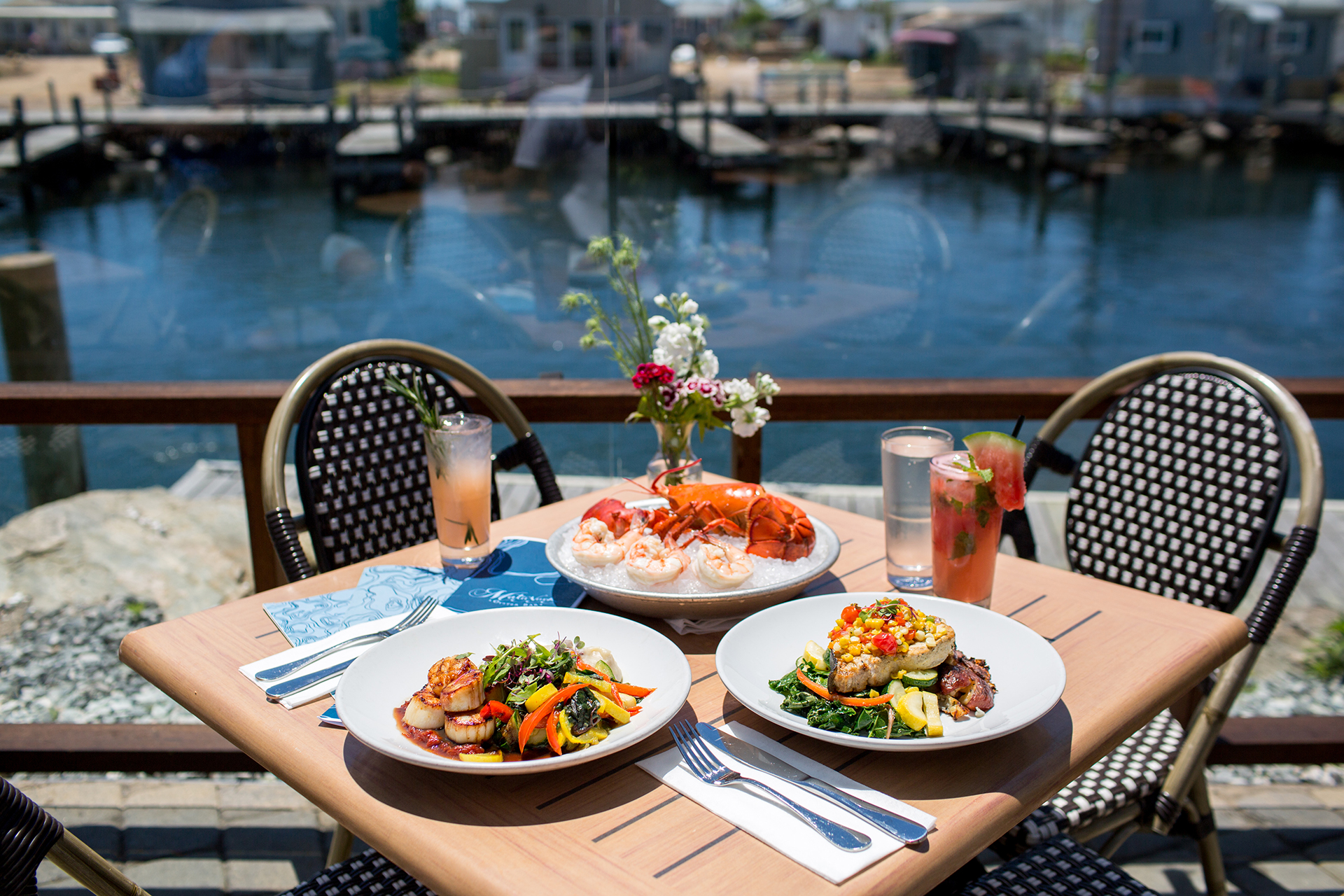You can't always get what you want, but if you try some time, you might not even get what you need
On some key issues, General Assembly opts for baby steps
By Nancy Lavin, Christopher Shea and Alexander Castro, Rhode Island Current
 |
Rep. Teresa Tanzi, a South Kingstown Democrat, speaks in
the House chamber on Friday, June 20, 2025.
(Photo by Nancy Lavin/Rhode Island Current) |
Explosive debate over assault-style weapons — what types of guns and owners to restrict, if any — carried through the final day of the 2025 legislative session Friday.
After a series of failed attempts to weaken and strengthen a proposed limit on assault-style weapons, a ban on sales and manufacturing — but not possession — ultimately prevailed.
True to form, lawmakers found plenty more to debate and discuss over the marathon day that stretched late into the evening.
As the sun went down, the temperature inside the airless second-floor chambers seemed to rise. On what was the first full day of summer, lawmakers quenched their thirst with Del’s frozen lemonade and an endless carousel of caffeinated beverages.
Senate Majority Leader Frank Ciccone donned shorts in an unusually casual fashion choice, displaying a rarely seen calf tattoo of his late dog, Gunther.
Senate softens state’s aim on assault weapons
You can still own an assault-style weapon in Rhode Island, but can’t buy or sell it. That’s the gist of the legislation approved by both chambers in an eleventh-hour rework aimed at appeasing at least some of its critics.
The rewrite was led by the Senate, which kicked off its marathon session with an hour-long debate, culminating in a 25-11 vote, to approve the bill banning the manufacture and sale of semi-automatic rifles, shotguns, and handguns with military-style features beginning July 1, 2026. It does not address inheritance of these weapons.
“The expectation over time is the proliferation of assault-style weapons, as specified in the bill, will go down,” Sen. Lou DiPalma, a Middletown Democrat and bill sponsor, said. “We need to get this done today.”
The Senate’s checkmate forced the House, which had already approved a more restrictive version that also banned possession, to reconsider. The lower chamber eventually caved to the Senate’s less stringent counterpart by a 43-28 vote just before 9:30 p.m.
The House’s vote came after a nearly two-hour break likely marked by behind-the-scenes negotiations, and an additional, five-minute recess for representatives to familiarize themselves with the Senate’s changes.
“This bill cuts off the supply of weapons of war for the long haul at the point of sale,” Rep. Jennifer Boylan, a Barrington Democrat and gun safety advocate, said.
Rep. Jason Knight, a Barrington Democrat, also backed the Senate version, despite its significant changes from the more sweeping ban he had successfully advanced through the House chamber already.
“The two bills in their effect on the ground are closer to each other than you think,” Knight said, noting that the difficulty in procuring a new assault-style weapon even in other states prevents expansion of the “universe” of such weapons in Rhode Island.
Yet, the compromise was met with some dissatisfaction from both sides. The Rhode Island Coalition Against Gun Violence had denounced the “watering down” of what had been a much more sweeping ban on assault-style weapons.
Sen. Pamela Lauria, a Barrington Democrat, sought to amend DiPalma’s bill to mirror the House version, despite the Senate Committee on Judiciary opting to hold the stronger option for further study on Wednesday.
“As we look to pass critical legislation regarding assault weapons, we should have taken the opportunity to pass the best version of this bill,” Lauria said.
But after Senate Republicans, along with Ciccone, raised objections, Senate President Valarie Lawson ruled that Lauria was out of order.
Republicans, along with some conservative Democrats, and gun rights groups maintained that no ban at all was the answer. All four Senate Republicans, plus some conservative Democrats, voted against the ban on the manufacture and sale of assault-style weapons.
Across the rotunda, Cranston Rep. Charlene Lima, a conservative Democrat, also denounced the compromise bill for going too far. Her critiques were met with raucous applause from yellow T-shirt-wearing Second Amendment supporters seated in the gallery. House Speaker K. Joseph Shekarchi issued a stern rebuke, noting the seriousness of the topic before them.
“We will not have interruptions,” Shekarchi told onlookers. “If there is another uproar, I will close the gallery and you can watch on TV.”
Despite the warning, gun rights advocates booed after the House passed the amended bill.
The final version drew support from Everytown for Gun Safety, which maintained the language still covers the majority of the assault-style weapons frequently used in mass shootings. The Rhode Island AFL-CIO, a strong supporter of Lawson, also backed the proposal in a statement Thursday pointing to the union’s February poll that found 64% of residents support “banning the sale and manufacture of military-style assault weapons” in the state.
Gov. Dan McKee, who had posed the weapons ban as a budget issue earlier in the year, confirmed via social media he will sign the measure into law.
“I’m proud that Rhode Island took an important step forward in protecting our communities from gun violence,” he posted to X at 9:50 p.m.
Clearing the air in R.I.’s two casinos
Bally’s two Rhode Island casinos will be slightly less smoky starting in 2027 — 18 months later than its advocates wanted.
The delayed start combined with a second, late-in-the-session clawback prompted longtime advocate and sponsor Rep. Teresa Tanzi to withdraw her name from her own bill after the opposite chamber added a carveout for smoking bars within casinos. Tanzi was one of four Democratic representatives to vote against the bill she introduced, though it prevailed with 67 supporters in the House Friday.
Tanzi, a South Kingstown Democrat, railed against the revised proposal, declaring it was “nothing like” her original, which had called for the smoking ban to start July 1, 2025, with no exceptions.
Rather than banning smoking in Bally’s Corp.’s Lincoln and Tiverton casinos altogether, the amended legislation adds an exemption for smoking lounges with a new, hazy definition, Tanzi argued.
“This does not prevent Bally’s from expanding cigarette smoking or cigar smoking or vaping or, I don’t know, cannabis,” Tanzi said. “It’s really not clear to me what this new definition is because there’s all of a sudden a brand-new definition about smoking lounges.”
Existing state law defines “smoking bars” as businesses where tobacco sales are greater than 50% of its total revenue. The amended version offers new meaning for a – “pari mutual facility smoking lounge,” defined as any kind of smoking bar with a “proper ventilation system” that will “prevent the migration of smoke to nonsmoking areas.”
In Tanzi’s interpretation, that means any walled-off section of the casino floors could remain a smokers’ paradise.
The Senate already approved the modified smoking ban under a unanimous vote Wednesday. Though Sen. V. Susan Sosnowski sponsored her chamber’s version, Senate Majority Leader Frank Ciccone brokered the compromised legislation after initially seeking to reach an agreement between Bally’s and union leaders to expand existing nonsmoking areas at the Lincoln facility.
Bally’s Corp. officials had opposed the proposed smoking ban, citing a potential annual revenue loss of $30 million to $60 million. Company spokesperson Patti Doyle thanked legislators for the compromise.
“Confining smoking to an existing smoking lounge at our Lincoln venue and allowing for a delayed transition away from smoking on the gaming floor will hopefully mitigate a portion of that anticipated revenue loss to the state,” Doyle said in a statement late Friday.
Union workers who for years have decried the health consequences of smoke-filled working conditions reluctantly agreed to the compromise version as “the best we could get,” Tanzi said Friday. However, the union wants to revisit the topic when lawmakers reconvene, either in a possible fall session in October or when it starts its next regular session in January, Tanzi said.
“I had a lot more faith in our legislators,” Vanessa Baker, an iGaming manager at Bally’s Twin River Casino in Lincoln, said in a phone interview Friday. “I thought they thought we were people.”
15th time’s a charm on payday lending reform
Cracking down on predatory payday lending practices drew strong support in the Rhode Island Senate Friday. The 27-6 vote came swiftly and with little debate — a stark contrast to the 15-year battle to move the legislation out of committee to the chamber for a vote.
Having already passed in the House with unanimous support Monday, the Senate’s endorsement sets the stage for the long-awaited end to triple digit interest rates on short-term, small-dollar loans — though not as soon as some advocates had hoped. A last-minute revision delayed the start date till January 2027 in an effort to give time to the “deferred deposit providers” like Advance America to wind down operations, and for their employees to find new jobs.
Under existing law, these storefront lenders had been able to take advantage of a loophole in state law to charge an annual percentage rate up to 360%. The legislation caps the annual interest and fees at no more than 36%, mirroring policies already adopted by 22 states and the federal government.
Kicking the can on a bottle bill
Rather than start prescribing specifics of a deposit-refund program for recyclable bottles, glasses and cans, both chambers approved a modified bottle bill Friday that advances only a small component of the original calling for yet another study of the policy.
The 53-11 and 36-0 votes in the House and Senate, respectively, came with reluctant support from Democratic backers who blamed opposing retailers and beverage manufacturers for mounting a misinformation-laden opposition campaign.
“There is still a great deal of conflicting data as to the implementation of best practices to address the problems of improving and disposing of our recyclable products, as well as enhancing our anti-littering efforts,” Shekarchi said in a statement earlier this week.
Rep. Carol McEntee, a South Kingstown Democrat and bill sponsor, also expressed disappointment, stating outright that the watered-down version is not a bottle bill at all, calling just for a series of studies.
Instead, the legislation calls for a “statewide implementation analysis” to be conducted by a third-party consultant hired by the Rhode Island Department of Environmental Management. The study would now be due no later than Dec. 1, 2026, with an interim status report due April 1, 2026. The state-hired consultant would consider the conclusions drawn by an 18-month legislative study commission, and the original bottle bills.
McEntee, who co-chaired the prior study commission, has already indicated she’s planning to introduce a full-fledged bottle bill again next session, even though the state analysis will not be finished yet.
CRMC membership changes on the horizon
Change is coming to the Rhode Island Coastal Resources Management Council, though not the sweeping reform advocates wanted. Rather than abolishing the politically appointed council and reshaping the agency as an administrative authority, lawmakers in both chambers narrowly agreed to a more modest update.
The bills, approved by 49-19 and 25-10 votes in the House and Senate, respectively, Friday, reduce the size of the council from 10 to seven members, simultaneously shrinking the quorum requirement in a nod to the vacancy issues that have plagued the existing panel. And it adds new professional qualifications for the powerful coastal regulatory body, specifically requiring an engineer, a coastal biologist and an environmental organization representative to sit on the new council.
The existing council does not have any expertise requirements, though members must represent a variety of municipalities based on size and coastal proximity.
How fast the refresh occurs depends largely on how fast new candidates can be found; the legislation calls for Gov. Dan McKee to name six appointees (the seventh is designated as a DEM representative) no later than March 1, 2026. But the bill also says existing members can continue to serve until their replacements are named.
Progressive Democrats and Republicans joined in opposition, with the former insisting the membership changes fell too far short of more comprehensive reforms needed.
Legislators reprimand McKee with anti-bid rigging bill
McKee just can’t seem to escape the stain left by a 2021 state education contract scandal, with an anti bid-rigging bill included on the legislature’s final calendar of the session.
The Rhode Island Senate’s unanimous approval Friday, following passage in the House two days prior, aims to close a loophole in state procurement law by expressly forbidding public officials and administrators from intentionally interfering with the process by which the state awards competitive contracts to outside vendors.
The need for specificity was laid bare by an investigation by Attorney General Peter Neronha’s office and Rhode Island State Police into a state education contract awarded to the ILO Group. State investigators ultimately found insufficient evidence to charge McKee for steering the $5.2 million school reopening contract to one of his former adviser’s friends — in part because there was nothing in state law saying that he could not.
The newly approved legislation, however, imposes strict penalties on state officials and vendors who participate in future collusion or bid-rigging activities: a felony charge punishable by up to three years in prison and a $1 million fine (or three times the value of the contract, whichever is greater). Vendors found to have participated in bid-rigging or steering activities are also no longer able to perform work for the state for up to five years.
McKee still needs to sign the legislation for it to become law — uncertain given documented attempts by his aides to dismantle the bill earlier in the session. McKee’s office did not immediately respond to inquiries for comment later Friday.
Opposition couldn’t break levy bill
The General Assembly OK’d Providence Mayor Brett Smiley’s request to exceed the state’s annual 4% tax levy cap, clearing the way for a 7.5% increase in the amount of property taxes the city can collect in fiscal year 2026.
Providence Democrats Rep. Rebecca Kislak and Sen. Sam Zurier introduced the bound-to-be unpopular bill in their respective chambers.
The House was the first to grant the city’s wish, passing Kislak’s bill in a 56-17 vote on May 27. The Senate passed Zurier’s version 30-7 on Wednesday. On Friday night, each chamber voted to concur with the other’s version of the bill, finalizing its passage out of the State House and toward McKee’s desk.
In the House, Zurier’s bill passed 57-14, with opposition from all 10 Republicans plus four Democrats, including Providence Reps. Enrique Sanchez and David Morales. In the Senate, Kislak’s bill passed 27-7, with Providence Democratic Sens. Sam Bell, Tiara Mack and Ana Quezada expressing disapproval similar to their House colleagues.
The extra revenue from the tweaked levy cap is meant to help resolve a budget shortfall introduced last November by a $15 million settlement between the city and the state’s education department over Providence’s public schools. The mayor, with the Providence City Council’s somewhat reluctant approval, has been counting on the levy measure as the critical piece in the city’s fiscal 2026 budget. While the mayor’s budget technically lowers property tax rates, new property valuations mean many homeowners will still see higher tax bills.
WPRI-12 reported Wednesday that Smiley has asked McKee to sign the legislation as soon as it arrives on his desk. But even with the General Assembly’s blessing, it’s not clear if the added tax revenue will arrive in time to shore up the city’s fiscal 2026 budget, Smiley told the news station.
Kratom clears Senate
For the second year in a row, a bill to regulate the psychoactive drug known as kratom arrived at the final night of the legislative session. Unlike last year, when the bill provoked a fierce debate in the Senate, it sailed through the chamber with a 22-9 vote.
The House version encountered more vigorous resistance when it went up for a floor vote on May 29. It passed 40-24, with a mix of Republicans, Democrats and one independent lawmaker decrying easier access to the plant-derived drug, which can be used as an opioid substitute or a stimulant.
The bill was sponsored by Rep. Brian Patrick Kennedy, a Westerly Democrat, and Sen. Hanna Gallo, a Cranston Democrat, with the intent of bringing kratom — a product already available in gray markets like gas stations or head shops — into the sphere of regulation and taxation. This year’s bill is 25 pages, compared to last year’s six, and it would mandate strict labeling, testing, and age restrictions around kratom commerce, as well as limitations on what products could be sold mixed with kratom.
Last year, McKee vetoed the legislation — an outcome sponsors tried to avoid this year by working with the governor and the state health department to craft a more agreeable bill.
GET THE MORNING HEADLINES.
SUBSCRIBE
Rhode Island Current is part of States Newsroom, a nonprofit news network supported by grants and a coalition of donors as a 501c(3) public charity. Rhode Island Current maintains editorial independence. Contact Editor Janine L. Weisman for questions: info@rhodeislandcurrent.com.




.jpg)
.jpg)
.jpg)

.jpg)







.JPG)


